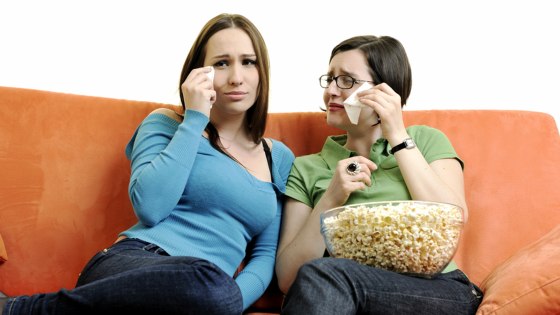
How are filmmakers able to push our buttons?
One way that we perceive emotion in film is through I process I call the Mirror Rule, which says that it’s a good idea to mimic the visual input that you’re seeing. So if you walk up to somebody and they smile at you, it’s good to smile back.
If you watch somebody in the theater and there’s a smiling face filling the screen, most of the audience is going to pop a little bit of a smile.
When we’re smiling, we tend to feel happier. When we’re frowning, we tend to feel angrier. So that combination of the Mirror Rule and the reading of emotion by the brain off the current state of the body is enough to produce emotion.
In film, a filmmaker has the opportunity to integrate those things very tightly. He can control exactly what’s shown of the face and what else is present. And the viewer has much less opportunity to walk away or focus on other things…
While I feel that movies are one of the most power things man has ever created (it can educate, inspire and change lives for good… or bad–witness war propaganda films), most people don’t realize how manipulative they really are. The abuse of the art has always been something that makes my blood boil. What is that saying? “With great power comes great responsibility.” ~Uncle Ben
https://www.today.com/health/your-brain-movies-why-films-make-us-cry-flinch-cheer-1D80258284
